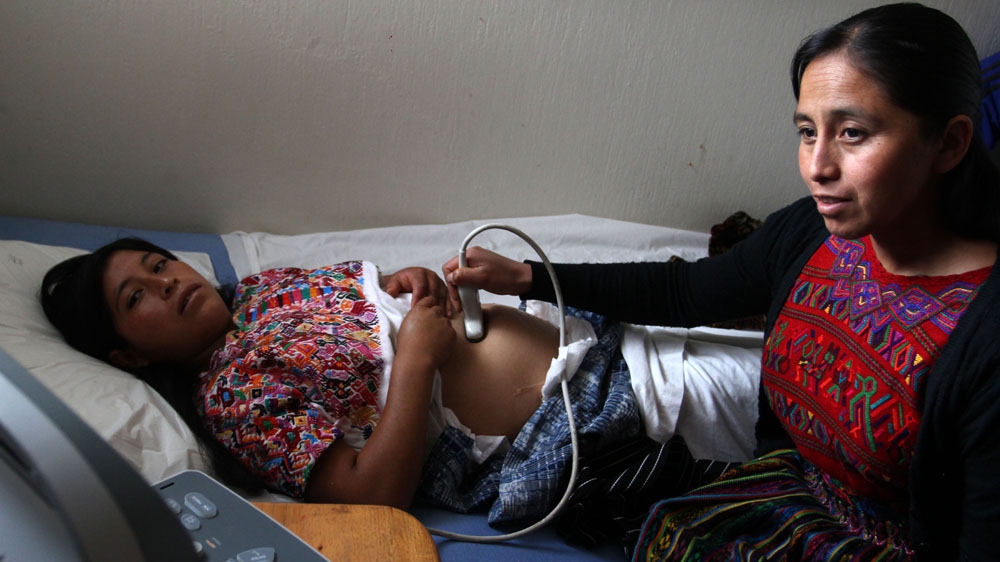Our series of Academic Blog continues with this piece written by Salma Abedullah. As part of the Office of Global Initiatives’ 2024 International Leadership Exchange Global Scholars Program, Salma conducted extensive research into the fading practice of home births in Belize
Home Births: A Belizean Lost Practice? by Salma Abedullah
Visiting the Garifuna community in rural Belize, we were able to culturally immerse ourselves. We wore Garifuna garments, learned about Garifuna history (including the importance of the Cassava plant), and visited their organic farm, where we learned how they use herbs as medicine and for lifestyle purposes. As an Indigenous community, the Garifuna have their own language and way of living. They have their own cuisine—which is delectable—and a strong sense of community. While Garifuna people are not opposed to modern medicine in any sense, according to community leaders we met in Palmento Grove, Belize, they do prefer specific traditional methods such as home births with traditional midwives.
Eugene Martinez, the grandfather at Palmento Grove, seemed very distraught about the decrease in home births within his community. “The government makes our women give birth in hospitals to merely track us down as numbers on a census,” Martinez said. While I could not find a direct policy associated with this claim, one source mentions that the first child born to a family in Belize needs to be born in the hospital (Homegrown Families, 2019). The possible unintended consequence of this is the decrease in traditional home births across Indigenous families all over Belize. “The mother just gives birth and goes home the same day…whereas, back in my time, mothers built a relationship with the midwives who assisted them in their births at home,” Martinez said. Another unintended consequence of this practice is that mothers do not get the chance to build relationships with their providers, leading to less intimate and longitudinal care
with the provider who assists in birthing their child. This, in itself, puts Indigenous mothers at a health disparity.
According to studies by the United Nations, data shows that Indigenous women in Belize die in pregnancy and childbirth more than other women (UNFPA & UNICEF, 2018). This can be due to a variety of factors, such as the lack of access to hospitals for Indigenous women who predominantly live in rural settings, or even the lack of relationships with their providers. One article by UNICEF states, “The Southern Regional Hospital and Dangriga Polyclinic serve more than 75,000 people in the Stann Creek District and all its villages as well as the southern district of Toledo and its 55 communities” (UNICEF, 2019). This statistic shows that hospital services are stretched thin as they serve a large population and over four dozen communities. A combination of limited hospital access due to distance and overwhelmed facilities contributes to the significant health disparities faced by rural Indigenous communities.
In Belize, 32.3% of neonatal deaths occur in rural areas, with 12% of those from Mayan communities and 5% from Garifuna communities (UNICEF, 2024). Another trend related to this is the significant decrease in the number of home births in Belize. In 1995, 18% of registered births in the country took place at home, compared to 38% in 1985, and home births will likely continue to decline as the number of traditional birth attendants decreases (Boyer et al., 2001). Here, the identified problem is the lack of midwives.
The cultural significance of midwifery and home births in Indigenous communities cannot be overstated. For centuries, these practices have been integrated into the fabric of Indigenous communities; they are ceremonies that honor the women’s role in giving life and introducing a new member of the family. This practice reinforces community and familial relationships across generations, not just in Belize but across the world. The shift to hospital births has disrupted this cultural tradition, leading to a loss in relationships between women and their healthcare providers. Moreover, the trend of declining midwifery across Belize threatens
the conservation of these practices, which are essential to Belizean Indigenous communities.
Furthermore, the push for policies or precedents favoring hospital births not only diminishes the autonomy of Indigenous communities to maintain their cultural practices but can also erode trust between healthcare providers and their patients, as highlighted by Eugene Martinez’s concerns. By investing in culturally sensitive care, such as promoting midwifery education—a recent initiative by the University of Belize and the Ministry of Health—and bridging the gap between traditional and modern healthcare practices, we can better address the concerns of Indigenous communities like the Garifuna (Gonzalez, 2024). These efforts may also help reduce the health disparities faced by Indigenous mothers and children.
Moreover, such efforts can result in more autonomous care for Indigenous communities, leading to more trusting relationships with healthcare professionals. By bridging the gap between traditional practices, cultural heritage, and modern healthcare practices in Belize, not only will healthcare outcomes be improved for Indigenous families, but Indigenous communities will also be empowered to reclaim and preserve their cultural heritage in an ever-changing global context.
References
Boyer, D. B., Klima, C., Jennrich, J., & Raisler, J. E. (2001, March 5). Midwifery in Northern Belize. Journal of Midwifery & Women’s Health.
https://www.sciencedirect.com/science/article/abs/pii/S1526952300000957
Gonzalez, Z. P. (2024, January 23). Ministry of Health and Wellness and University of Belize sign agreement for new Midwifery Program. Breaking Belize News. Retrieved August 10, 2024, from
https://www.breakingbelizenews.com/2024/01/23/ministry-of-health-and-wellness-and-university-of-belize-sign-agreement-for-new-midwifery-program/
Homegrown Families. (2019, May 27). Birth in Belize. Homegrown Families. Retrieved August 10, 2024, from https://www.ashevillehomegrownfamilies.com/birth-in-belize/
UNFPA&UNICEF.(2018). Indigenous Women’s Maternal Health and Maternal Mortality. United Nations Population Fund. Retrieved August 10, 2024, from
https://www.unfpa.org/sites/default/files/resource-pdf/factsheet_digital_Apr15.pdf
UNICEF. (2019, September 19). Overcoming obstacles to health care. UNICEF. Retrieved August 10, 2024, from
https://www.unicef.org/belize/stories/overcoming-obstacles-health-care
UNICEF. (2024). BELIZE NEWBORN ACTION PLAN 2024-2030. Retrieved August 10, 2024, from https://www.everywomaneverychild-lac.org/wp-content/uploads/2023/11/Belize-Newborn-Action-Plan-2030-11-NOV-2023.pdf


